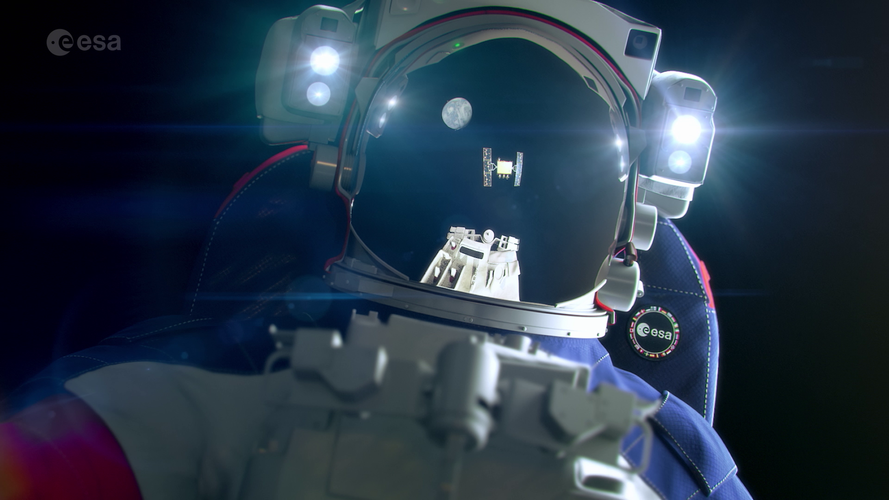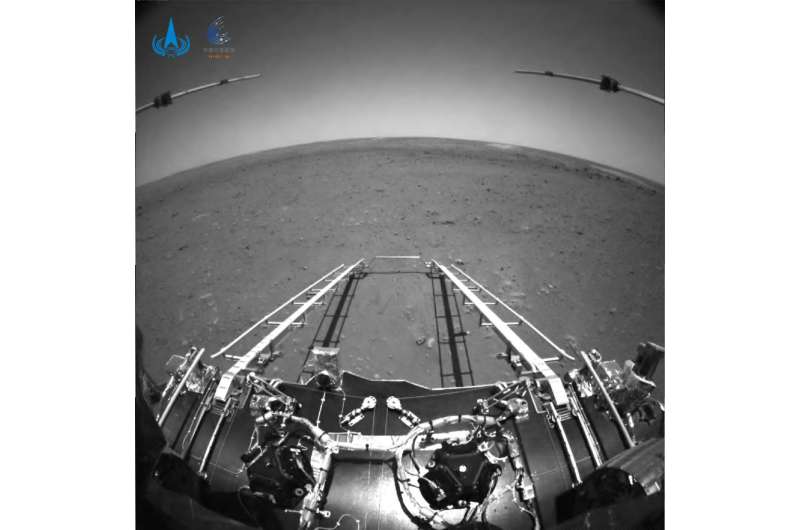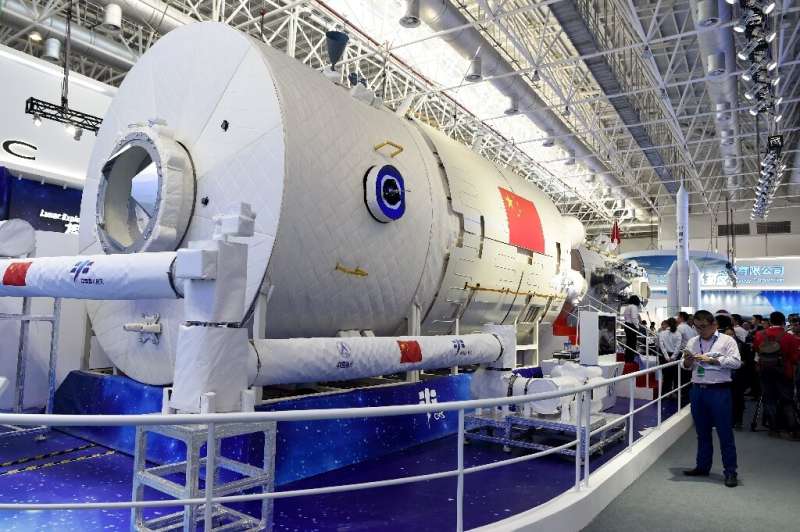
Copernical Team
Deep space communication and navigation

Deep space communication and navigation
Moonlight: bringing connectivity to the Moon
 Video:
00:01:56
Video:
00:01:56
As international teams across the world forge plans to revisit the Moon, ESA is elaborating how best to facilitate this exploration.
As part of its Moonlight initiative, the agency is encouraging European space companies to put a constellation of telecommunications and navigation satellites around the Moon.
To succeed, the proposed lunar missions will require reliable navigation and telecommunication capabilities. Building these independently would be costly, complex and inefficient.
If this work were outsourced to a consortium of space companies, each individual mission would become more cost-efficient.
Having one system dedicated to lunar telecommunications and navigation could reduce design complexity, liberating missions
China delays mission while NASA congratulates on Mars images

Join ESA, NASA and JAXA for the Earth observation COVID-19 hackathon

Do you have ideas on how Earth observation data can solve some of the challenges related to the COVID-19 pandemic? If so, ESA, NASA and JAXA invite you to join a virtual Earth Observation Dashboard Hackathon taking place on 23-29 June. Registration for the hackathon opens today.
China delays supply mission to newly launched space station

China has postponed the planned launch Thursday of a rocket carrying supplies for its new space station due to technical reasons, state media said.
The China Manned Space Agency gave no details on what the reasons were, and said only that a new launch time would be "determined later," the Xinhua News Agency reported.
The blast-off was to have taken place just days after China landed a rover on Mars, as it hustles ahead with its extraterrestrial ambitions.
Beijing has pumped billions into its space programme in a bid to make up ground on pioneers Russia and the United States, with ambitious projects in Earth orbit and the landing of uncrewed craft on the Moon and Mars.
But it was heavily reprimanded by the United States and many experts for a potentially dangerous breach of space etiquette for letting a massive rocket segment free-fall to Earth earlier this month after launching the core module of China's space station.
Moon mission delays could increase risks from solar storms

Planned missions to return humans to the Moon need to hurry up to avoid hitting one of the busiest periods for extreme space weather, according to scientists conducting the most in-depth ever look at solar storm timing.
Scientists at the University of Reading studied 150 years of space weather data to investigate patterns in the timing of the most extreme events, which can be extremely dangerous to astronauts and satellites, and even disrupt power grids if they arrive at Earth.
The researchers found for the first time that extreme space weather events are more likely to occur early in even-numbered solar cycles, and late in odd-numbered cycles—such as the one just starting. They are also more likely during busy periods of solar activity and in bigger cycles, mirroring the pattern for moderate space weather.
The findings could have implications for the NASA-led Artemis mission, which plans to return humans to the moon in 2024, but which could be delayed to the late 2020s.
Professor Mathew Owens, a space physicist at the University of Reading, said: "Until now, the most extreme space-weather events were thought to be random in their timing and thus little could be done to plan around them.
Did Earth's early rise in oxygen help multicellular life evolve
 Scientists have long thought that there was a direct connection between the rise in atmospheric oxygen, which started with the Great Oxygenation Event 2.5 billion years ago, and the rise of large, complex multicellular organisms.
That theory, the "Oxygen Control Hypothesis," suggests that the size of these early multicellular organisms was limited by the depth to which oxygen could diffuse
Scientists have long thought that there was a direct connection between the rise in atmospheric oxygen, which started with the Great Oxygenation Event 2.5 billion years ago, and the rise of large, complex multicellular organisms.
That theory, the "Oxygen Control Hypothesis," suggests that the size of these early multicellular organisms was limited by the depth to which oxygen could diffuse China launches latest marine research satellite
 A Long March 4B rocket carrying the Haiyang 2D (HY-2D) satellite takes off from the Jiuquan Satellite Launch Center in Northwest China, on May 19, 2021. [Photo by Wang Jiangbo/chinadaily.com.cn]
China launched its latest oceanographic research satellite, the HY-2D, on a Long March 4B carrier rocket from the Gobi Desert on Wednesday morning, according to the China National Space Administration.
A Long March 4B rocket carrying the Haiyang 2D (HY-2D) satellite takes off from the Jiuquan Satellite Launch Center in Northwest China, on May 19, 2021. [Photo by Wang Jiangbo/chinadaily.com.cn]
China launched its latest oceanographic research satellite, the HY-2D, on a Long March 4B carrier rocket from the Gobi Desert on Wednesday morning, according to the China National Space Administration. China postpones launch of rocket carrying space station supplies

China has postponed the planned launch Thursday of a rocket carrying supplies for its new space station due to technical reasons, state media said.
The China Manned Space Agency gave no details on what the reasons were, and said only that a new launch time would be "determined later," the Xinhua News Agency reported.
The blast-off was to have taken place just days after China landed a rover on Mars, as it hustles ahead with its extraterrestrial ambitions.
Beijing has pumped billions into its space programme in a bid to make up ground on pioneers Russia and the United States, with ambitious projects in Earth orbit and the landing of uncrewed craft on the Moon and Mars.
But it was heavily reprimanded by the United States and many experts for a potentially dangerous breach of space etiquette for letting a massive rocket segment free-fall to Earth earlier this month after launching the core module of China's space station.
More than 175 billion cosmic rays later
 The International Space Station's largest scientific instrument celebrates a decade in orbit. Wednesday 19 May 2021 marks 10 years since the cosmic-ray-hunting Alpha Magnetic Spectrometer (AMS-02) was installed on the exterior of the Space Station.
AMS-02 is a sub-atomic particle detector that looks for dark matter, antimatter and measures cosmic rays. It took 16 countries and nearly 20 ye
The International Space Station's largest scientific instrument celebrates a decade in orbit. Wednesday 19 May 2021 marks 10 years since the cosmic-ray-hunting Alpha Magnetic Spectrometer (AMS-02) was installed on the exterior of the Space Station.
AMS-02 is a sub-atomic particle detector that looks for dark matter, antimatter and measures cosmic rays. It took 16 countries and nearly 20 ye 































